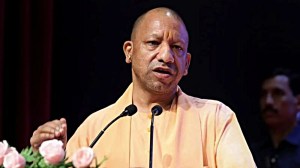Six stock exchanges fail to get Y2K compliance
MUMBAI, DECEMBER 9: Only 21 days are left for next millennium but six stock exchanges in the country are not ready to face the D-day as th...

MUMBAI, DECEMBER 9: Only 21 days are left for next millennium but six stock exchanges in the country are not ready to face the D-day as they have failed to achieve the Y2K (year 2000 computer problem) compliance so far. This parlous situation has put investors dealing with these stock exchanges at considerable risk of losing valuable data, money and even share transactions.
To top it all, 18 depository participants, 26 share transfer agents and 21 merchant bankers have not yet become Y2K compliant, giving jitters to lakhs of investors across the country. These are vital market intermediaries who deal with investors on a day-to-day basis and any Y2K problem from these agencies are likely to dampen the investor confidence.
The non-Y2K compliant exchanges identified by the Securities and Exchange Board of India (SEBI) are: Ludhiana, Vadodara, Uttar Pradesh, Gauhati, Jaipur and Pune. “We have asked the officials of these exchanges to deactivate the trading terminals of those brokers who are not Y2K compliantwith effect from December 15,” said a SEBI official. SEBI has also asked non-compliant registrars not to take any fresh assignments and directed the clients of non-compliant registrars to shift their business.
The market regulator says these six exchanges are yet to achieve Y2K compliance in both hardware and software areas. However, one consolation is that these exchanges handle only five per cent of the total business volume recorded on all the exchanges.
Out of 23 stock exchanges operating in the country, SEBI claims that 17 exchanges – including the Bombay Stock Exchange and the National Stock Exchange and the ones in Calcutta, Delhi, Chennai and Bangalore – have achieved the Y2K status. “Although the stock exchanges got enough time to upgrade their systems, it is surprising that six exchanges have failed to become Y2K compliant. Brokers and investors from other centres who are dealing with these six exchanges will have to be careful,” said BSE broker BV Shah.
If a BSE broker has any dealingswith a broker of the Pune Stock Exchange, there are chances that the Mumbai broker will also be affected because the Pune broker has not achieved Y2K compliance. As nobody is sure how the so-called Y2K bug will hit the computers, confused investors are awaiting the new millennium with trepidation.
SEBI claims that the business operations of two depositories (National Securities Depository and Central Depository Services), 36 mutual funds, 13 share custodians (firms which keep shares on behalf of investors like FIIs), four stock lenders, four credit rating agencies (Crisil, ICRA, CARE and Duff & Phelps) and 20 portfolio managers have become Y2K compliant and ready to face the new millennium.
However, the demat process (electronic share transfer) is also facing uncertainty with 18 depository participants – out of a total of 167 DPs – failing in the Y2K compliance. According to a DP, the situation could turn serious as SEBI has put several shares under compulsory demat and investors might see theirshareholdings disappearing in the computer system. Investors, on the other hand, are not sure which DP (the link between investors and the depository) has become Y2K compliant and which has not.
SEBI also says 21 merchant bankers (out of 184) have not achieved the Y2K status. Here again, investors are likely to end up as losers because merchant bankers constitute a vital link in marketing initial public offerings. Corporates dealing with these merchant bankers face the risk of losing money, data and other vital information. Similarly, 26 share transfer agents (out of 230) have not overcome the Y2K problem, making investors nervous.
Share transfer agents handle share transfer on behalf of companies and deal with investors directly. Although the SEBI has asked companies to shift business from non-compliant registrars, it’s still not clear how many companies have followed the market regulator’s advice.
Against this background, several big investors including foreign institutional investors have slowed downtheir activity in the Indian market. Several foreign broking firms had cautioned their clients in dealing with Indian market intermediaries. SEBI is expected to make further review of the progress in Y2K compliance next week.
Photos


- 01
- 02
- 03
- 04
- 05





























